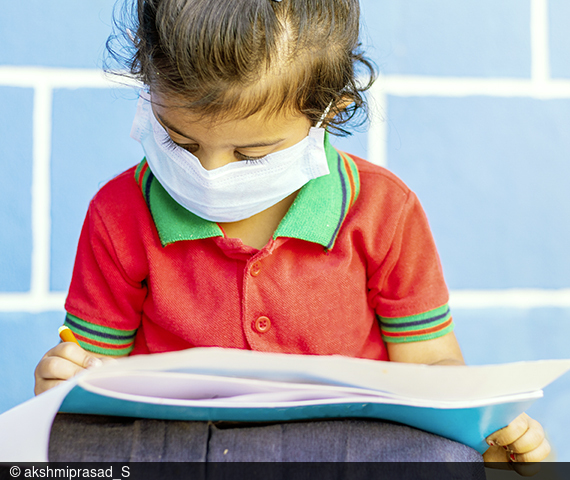School Closures and Education Policy: Equality Jeopardised
ResearchSchool closures reinforce existing inequalities related to a student’s socioeconomic background. This is particularly true for the first two years of primary school, as an expert brief by ZEW Mannheim shows. These inequalities affect not only important academic skills such as mathematics and literacy, but also perseverance and the ability to concentrate. “From an epidemiological perspective, school closures have been unavoidable. But they have significant side effects,” says Dr. Guido Neidhöfer, ZEW education economist from ZEW’s “Labour Markets and Human Resources” Department and co-author of the expert brief. “This is especially true the longer they last. So, without a suitable framework to allow learning at home, school closures jeopardise the efforts toward equality in education made by education policy,” Neidhöfer concludes. The authors of the expert brief would like to see policymakers to support the development of digital learning formats in order to reach all children even during school closures.
Otherwise, a lack of teaching and in-classroom interaction could lead to learning deficits among pupils. Inequalities relating to a child’s family background may increase, particularly in terms of academic achievement.
Making use of smartphones
The summer holidays provide further evidence of the impact of school closures. The ZEW expert brief shows that learning gains from first to second grade vary according to the pupils’ family background. Children whose parents have a lower level of education and lower-status jobs are more likely to fall behind their fellow students after the summer break.
A hitherto untapped potential for teaching during school closures is the widespread use of digital devices; according to their parents, more than 90 per cent of all sixth-graders own a mobile phone, for example. “We should increasingly make use of smartphones to professionalise learning at home in order to make sure that equality of learning is also achieved outside of the school itself,” Maximilian Bach notes. “The additional cost of supplying smartphones to students who do not possess one would likely remain at a manageable level.”
Making education fit for the digital age
The authors also call on policymakers to develop new learning formats that enable students to make progress in the learning process regardless of their family background. To this end, opportunities for digital interaction beyond face-to-face classes are needed. Mentoring programmes, in which university students support pupils with learning deficits outside of school classes, have proven to be successful in this regard. “We recommend that policymakers use the pandemic as a chance to restructure school education and make it fit for the digital age. Only then will the government be able to deliver on its promise to provide school students with similar learning environments,” explains Guido Neidhöfer.
A quarter of the children will need another school year
The school performance of children can vary significantly depending on their socioeconomic background. “The weakest 25 per cent of pupils would need, on average, about one additional year of schooling in order to compensate for any deficits,” says Maximilian Bach, researcher in ZEW’s “Labour Markets and Human Resources” Department and co-author of the study. First-graders whose parents obtained an Abitur (German high school diploma) or university degree, or who have high-status jobs, for example, achieve much better exam results. “This shows that differences in academic performance, which vary depending on the family background, are already pronounced when children enter school.” They also tend to receive better performance assessments from their teachers, which is particularly evident in regard to language skills.
Face-to-face teaching at school partially compensates for the economic and social disparities between families. Prior to coronavirus-related school closures, primary school students achieved similar learning progress over the course of a month regardless of their family environment, the authors explain. When schools are closed, the students’ socioeconomic circumstances have a greater impact on their performance. The authors also stress that these results cannot be extrapolated for a period of three months or an entire school year. “However, this analysis shows that pupils can achieve similar progress in face-to-face learning regardless of their background,” says Guido Neidhöfer. “Since all students experience a similar learning environment at school, they can also achieve similar outcomes in a given time frame. When schools are closed, inequality rises, particularly among those in the first few years of primary school.”

